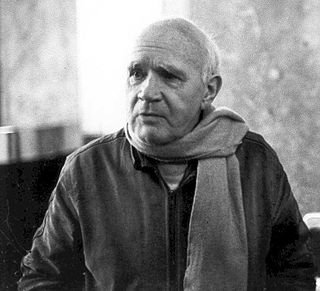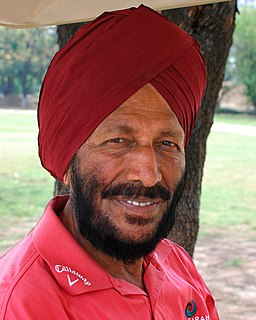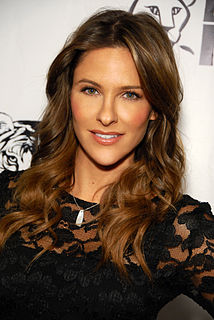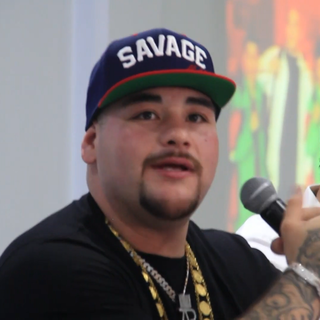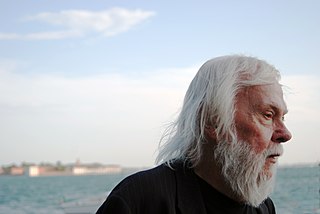A Quote by Jean Genet
I wanted to swallow myself by opening my mouth very wide and turning it over my head so that it would take in my whole body, and then the Universe, until all that would remain of me would be a ball of eaten thing which little by little would be annihilated: that is how I see the end of the world.
Related Quotes
It was actually books that started to make those pockets of freedom, which I hadn't otherwise experienced. I do see them as talismans, as sacred objects. I see them as something that will protect me, I suppose, that will save me from things that I feel are threatening. I still think that; it doesn't change. It doesn't change, having money, being successful. So from the very first, if I was hurt in some way, then I would take a book -- which was very difficult for me to buy when I was little -- and I would go up into the hills, and that is how I would assuage my hurt.
I would go with my husband to the tailors where he gets his shirts made, and I would watch the bespoke process. I would ask them, "Would you be able to make that for me?" And they would always say, "Well, yes, but no." They were very French about it. I decided I would just do it for myself. And I started doing that. Then other people would notice, and want it. So I started doing things for friends, little pieces, and my own line grew that way.
I didn't learn how to read and write until pretty late, and it was this very mysterious, incredible thing, like driving, that I didn't get to do. And then I started writing things down on little scraps of paper and I would hide them. I would write the year on them and then I would stuff them in a drawer somewhere. But I didn't start to really read until about eight. I'm dyslexic, so it took a long time.
When I was a kid--10, 11, 12, 13--the thing I wanted most in the world was a best friend. I wanted to be important to people; to have people that understood me. I wanted to just be close to somebody. And back then, a thought would go through my head almost constantly: "There's never gonna be a room someplace where there's a group of people sitting around, having fun, hanging out, where one of them goes, 'You know what would be great? We should call Fiona. Yeah, that would be good.' That'll never happen. There's nothing interesting about me." I just felt like I was a sad little boring thing.
If a man were poor or hungry, [some] would say, let us pray for him. I would suggest a little different regimen for a person in this condition: rather take him a bag of flour and a little beef or pork, and a little sugar and butter. A few such comforts will do him more good than your prayers. And I would be ashamed to ask the Lord to do something that I would not do myself. Then go to work and help the poor yourselves first, and do all you can for them, and then call upon God to do the balance.
My very existence, my life in the world, seemed like a hallucination. A strong wind would make me think my body was about to be blown to the end of the earth, to some land I had never seen or heard of, where my mind and body would separate forever. “Hold tight,” I would tell myself, but there was nothing for me to hold on to.
I would love to be a field biologist. I would love to do what Jane Goodall did, just totally immerse myself in the life of one specific species for years and study every aspect of its behavior until little by little, all of these patterns become clear. That would be great, but I don't know if I have it left in me.
I was sad to see some of them go. Like a magic lantern that would project images on walls and people would travel the countryside with these magic lanterns and tell stories. And there was this cabinet that you would walk up to and it had a little peephole and inside the whole thing was covered in thousands of little mirrors.
I remember how, at first, I had felt the tension in his lips, as if he was trying to make a barrier between us - then they had relaxed, parted slightly. And that's when I had known he wanted to kiss me, wanted to give in. That little parting of the lips, the little sigh that came out... I would hear that sigh forever. That little, little sound when the whole world seemed to open up.
How baffling it was that even the most cunning and clever people would frequently see only what they wanted to see, and would rarely look beyond the thinnest of facades. Or they would ignore reality, dismissing it as the facade. And then, when their whole world fell to pieces...they would tear their topknots or rend their clothes and bewail their karma, blaming gods or kami or luck or their lords or husbands or vassals-anything or anyone-but never themselves.
I was teaching live drawing in a community college and students started zoning in on the face and spending a couple of hours on that and then putting the rest of the body on the face only in the last hour. It didn't work to just tell them, 'Well, you're really not thinking of the body as a totality.' So in desperation I would put a drape over the model's head so they couldn't see it. They had to draw the body and then at the end of the session for an hour I would take the drape off just to try to reverse their procedure.
He was magnificent; very clever with outstanding technique. He could pass the ball over five yards or fifty; he could see things to set up other people; he could shoot and he could score goals. If you gave me Paul Scholes and ten others, I would be happy. I would tell them to give him the ball and then we would have a good team.
